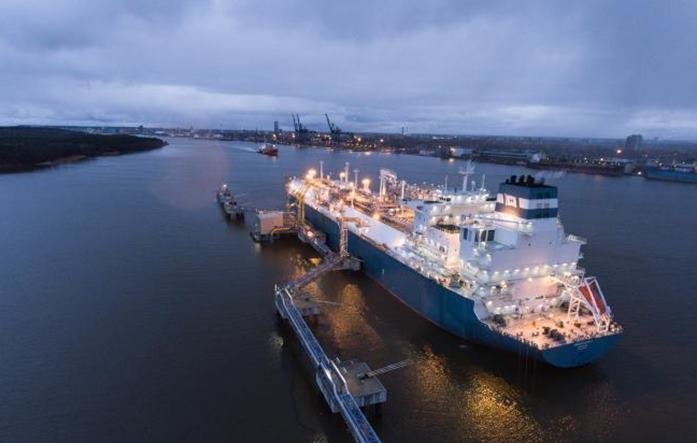The Klaipėda Liquefied Natural Gas (LNG) terminal has allocated long-term capacity until 2033. LNG terminal users from Lithuania, Latvia and Poland have been granted 4 LNG terminal capacity packages of 6 TWh/year (24 TWh) for a period of ten years starting from 1st January 2023. Following the renewal of the LNG terminal’s capacity allocation mechanism this year, in ten years approximately 60% of the LNG terminal’s annual capacity is allocated to terminal users with long-term contracts.
“The long-term LNG terminal capacity allocation mechanism has been under development during few past years, taking into account the new gas interconnections in the region that were only being planned at that time, and the higher forecast demand for LNG terminal services. The turbulence in the energy sector across Europe influenced by the war in Ukraine has only highlighted the importance of a long-term approach. We believe that long-term contracts with terminal users will contribute to reliable and uninterrupted gas supply in the region, will enable terminal users to manage supply contracts more easily and to procure natural gas in advance, thus securing the most favourable price on the market”,
Says Darius Šilenskis, KN CEO, stressing that the Klaipėda LNG terminal has been the only terminal in Europe so far that does not have the possibility of allocating long-term capacities.
By allocating capacity for ten years ahead, the Klaipėda LNG terminal as the main source of gas supply to Lithuania ensures that the market will make heavy use not only of the terminal, but also of Lithuania’s well-developed gas transmission infrastructure. In particular for Lithuania’s needs, as well as for gas transmission to other EU countries and for storage in Latvia’s gas storage facility.
“The GIPL pipeline, which became operational this year, has opened the way for natural gas, imported through Klaipėda LNG terminal, to enter the European market, where demand for natural gas will continue to grow over the next decade. The Latvia-Lithuania interconnection enhancement project ELLI will also have a positive impact on the terminal’s utilisation as it will enable natural gas to be transported to Latvia with one third more capacity as from November. By the end of 2023, the capacity to Latvia will increase more than twice compared to now, which will create even more flexibility both to divert natural gas from the LNG terminal to storage and to use it for the needs of the EU’s neighbouring countries,”
Says Nemunas Biknius, CEO of Amber Grid, the operator of Lithuania’s natural gas transmission system.
The remaining LNG terminal capacity will be allocated through the currently ongoing annual capacity allocation procedure, which is expected to allocate up to 9 TWh of LNG terminal regasification capacity for 2023. The annual capacity allocation is expected to give priority to the designated supplier and to meeting the current year’s natural gas demand of the LNG terminal users. The allocation of the capacity for spot cargoes will take into account the need for natural gas imports to ensure the isolated operation of the electricity system when necessary and, in the absence of such a need, to meet natural gas demand on a case-by-case basis.
From 1 May 2022, each LNG terminal user, i. e. companies importing natural gas through this infrastructure, pay the same fixed price for LNG terminal services. Meanwhile, the security supplement paid by natural gas consumers in Lithuania does not currently include the costs of maintaining the LNG terminal. The long-term capacity allocation mechanism should help ensuring such pricing in the future.
The LNG terminal capacity is allocated in accordance with the regulations of use of the LNG terminal approved by NERC (National Energy Regulatory Council) and other relevant legislation.
The procedure for the allocation of the annual LNG terminal capacity started on 21 September.
Media & Press Release KN AB Klaipėdos Nafta

